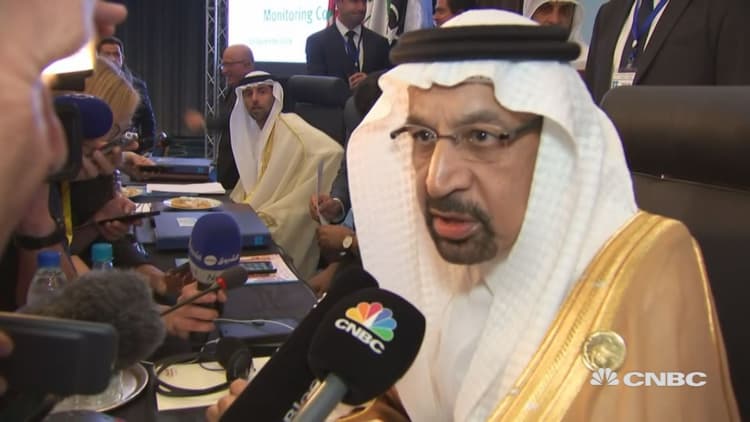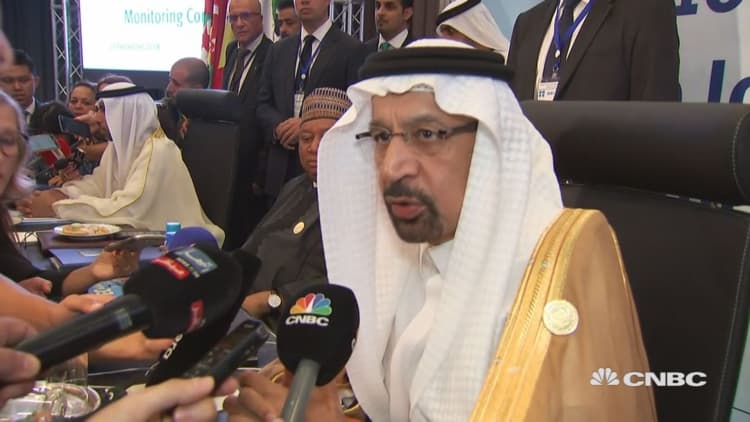
Saudi Arabia's oil minister rebuffed President Donald Trump's recent accusations that OPEC is pushing crude prices higher, speaking to journalists at the Joint Ministerial Monitoring Committee (JMMC) in Algiers on Sunday.
Asked by CNBC's Steve Sedgwick about the U.S. president's remarks, Saudi oil minister Khalid al Falih replied, "That is of course not true, we have been looking at more important aspects which is adequacy of supply. I think member countries over the last three months since June have responded in a very good way and have opened the taps and provided a lot of supply to offset decreases in Iran, decreases in Venezuela, decreases in Mexico, and markets are quite balanced today. There is plenty of supply to meet any customer that needs it."
Trump on Thursday tweeted, "We protect the countries of the Middle East, they would not be safe for very long without us, and yet they continue to push for higher and higher oil prices! We will remember. The OPEC monopoly must get prices down now!"
Brent crude is trading at just under $80 a barrel, with many analysts predicting prices will go higher, thanks to the drop in supply from major producers Iran and Venezuela after U.S. sanctions on the former and economic and political turbulence in the latter.
Saudi Arabia, as OPEC's largest producer, agreed to a deal with the cartel's other members and Russia in June to increase output in order to offset market losses and keep prices stable.
"My information is that the markets are adequately supplied," Al Falih said. "I don't know of any refiner in the world who is looking for oil that hasn't been able to get it. And I can tell you that Saudi Arabia and Saudi Aramco have met the requests of every customer from east to west since June of this year."

The September oil market report from the International Energy Agency (IEA) reported that global oil supply hit a record high in August of 100 million barrels per day (bpd). Higher output from the 15-member cartel managed to more than offset seasonal declines from non-OPEC members, although non-OPEC supply was also up 2.6 million bpd in August of the previous year, led by the U.S.
But despite robust production and supply, oil markets are tightening, meaning that a disruption in any major producer could lead to a material impact on prices. "We are entering a very crucial period for the oil market," the IAE report stressed.
"There are geopolitical tensions that have contributed to the markets and to price escalation, and we will try to address those," Al Falih added.
Asked if prices were too high, he replied, "I cannot speak to prices because I do not directly influence prices. What I can directly influence is ensuring that markets are well supplied, and that we will do today."


